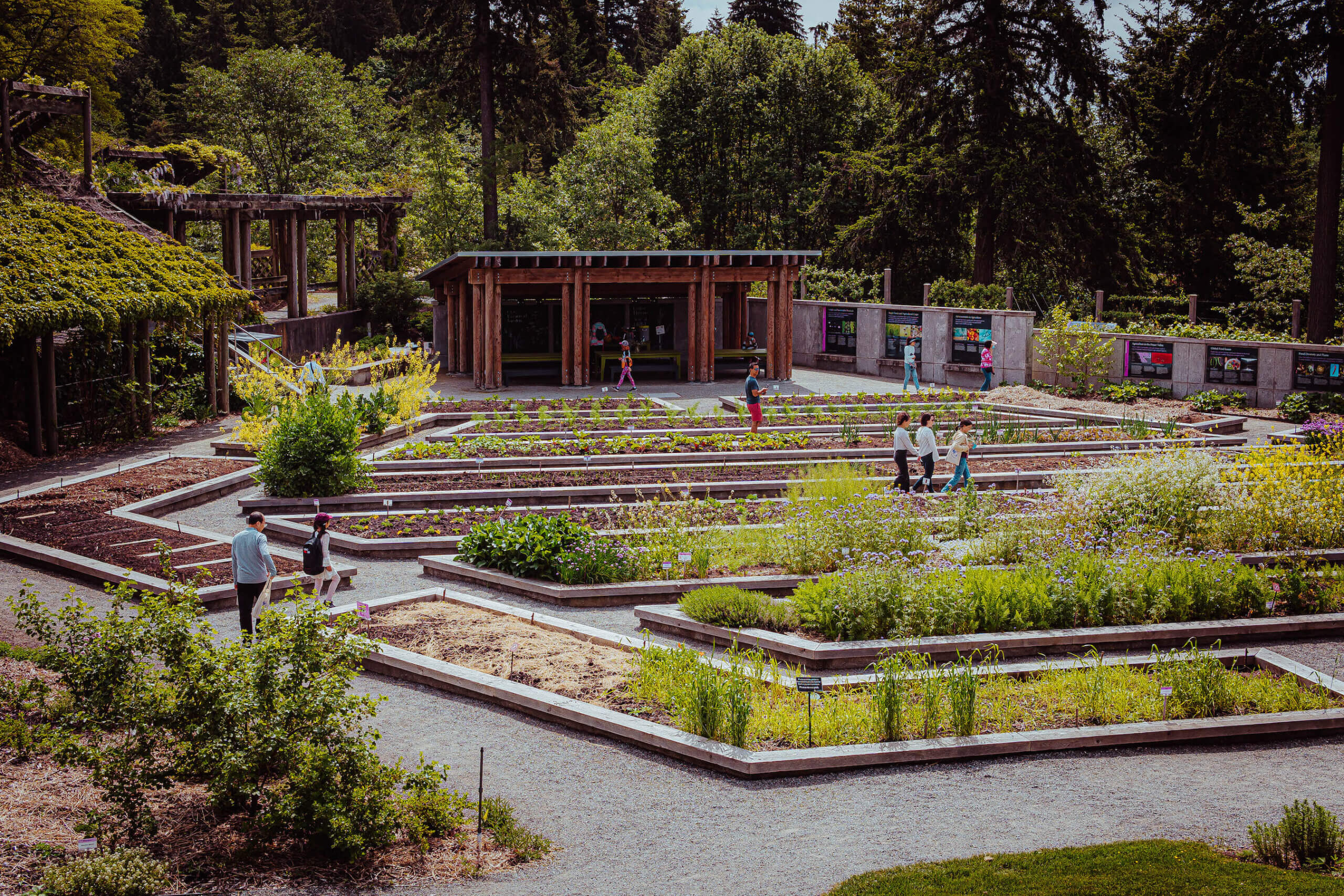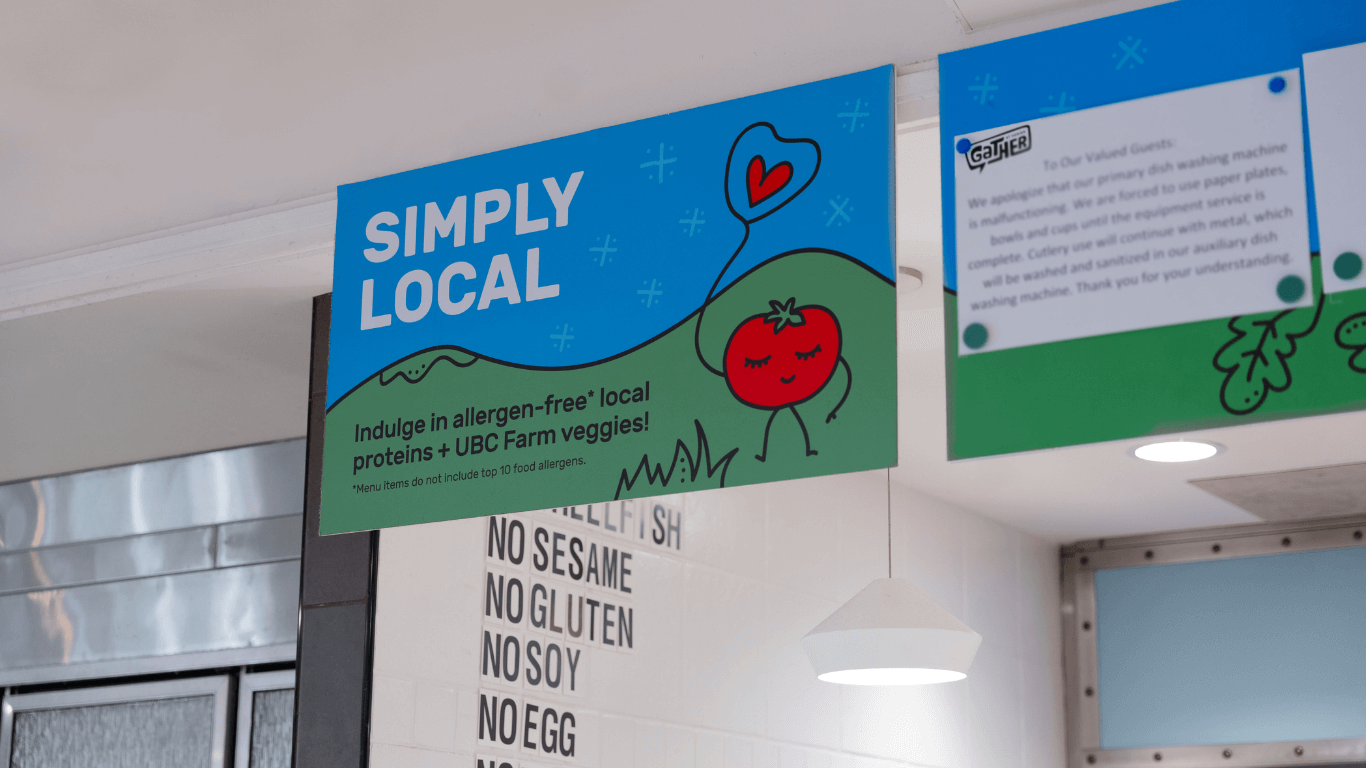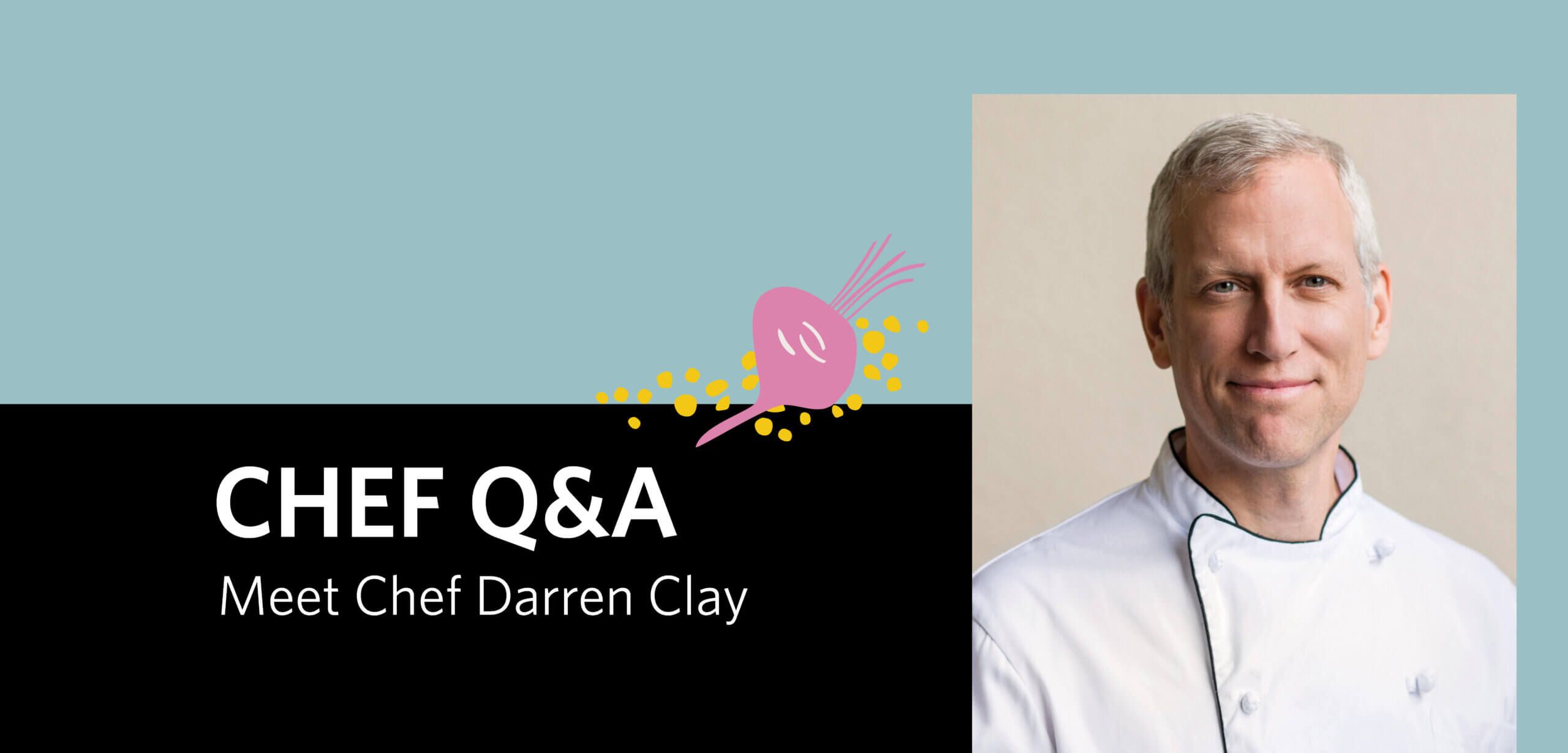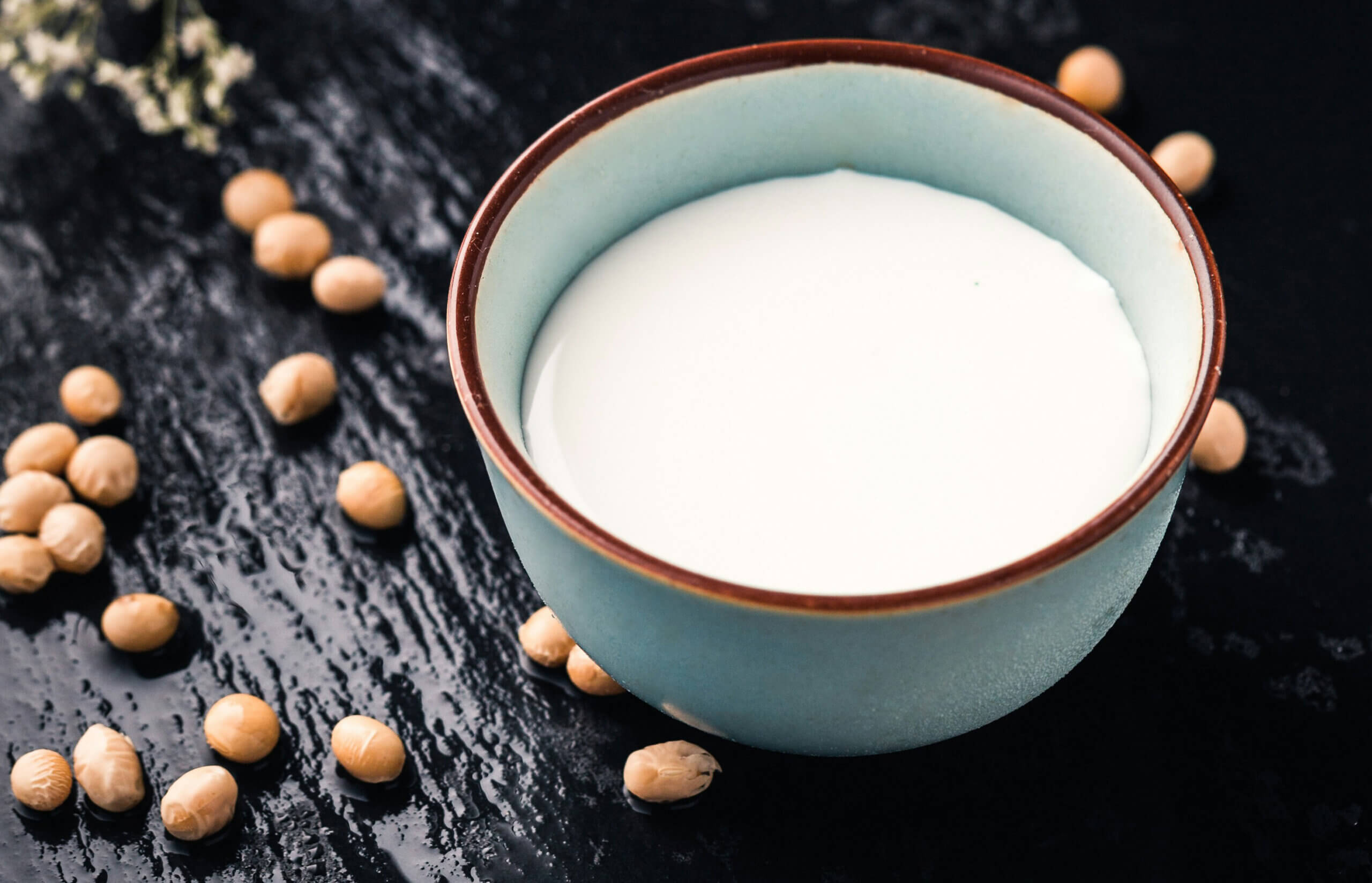Photo of the Food Garden at UBC. Credit: UBC Botanical Garden
To celebrate Earth Day, Dr. Tara Moreau joins us for a Q&A.
Nestled in the vibrant greenery of the UBC Botanical Garden is a Food Garden, a lush space where visitors are encouraged to explore their connection to food. The significance of this garden extends beyond its beauty; it serves as a place of biodiversity research and learning through its extensive plant collection.
Dr. Tara Moreau, Associate Director of Sustainability and Community Programs at UBC Botanical Garden, leads educational initiatives that advance biodiversity in local and global food systems. She designs and contributes to programs and partnerships including the Sustainable Communities Field School, Biodiversity Days, and a Grow Green Guide. At the heart of these initiatives is a deep-rooted commitment to preserve the plants that sustain us.
In a Q&A, Dr. Moreau shares UBC’s food plant initiatives and how biodiversity in our food systems can help future generations.
Bonnie: Can you tell me about some crop diversity initiatives at the Botanical Garden?
Tara: Since 1983, UBC Botanical Garden’s food garden has been a growing a diversity of food plants. Today the food garden grows about 250 to 300 different species of food plants, including tree fruits, berries, perennial vegetables and culinary herbs. The food garden is a really important place for teaching and learning—and celebrating the diversity of food plants that we can eat. There are many more plants to eat than just corn and potatoes—and a number of health benefits to these different food plants.
The food garden is a really important place for teaching and learning—and celebrating the diversity of food plants that we can eat.
Tara Moreau
Bonnie: How does the work you’re doing at UBC connect to food systems around the world?
Tara: Something important that I learned coming into the botanic garden world is that we are a living collection of plants. Through a process called ex-situ conservation, we’re working with seed banks and other groups to protect plants outside of their traditional habitats. We protect food plants in our collection and exchange them with other botanic gardens and seed banks to make sure that we don't lose any food plants under extreme weather conditions.
I work with the International Botanic Garden Network to help public gardens and botanical gardens around the world with food and agriculture programming to protect the diversity of food plants. These are food plants grown in gardens or for agriculture—or that are native with historical traditions of being cultivated by Indigenous people.
Bonnie: What impact do you hope these initiatives will have?
Tara: My hope is that we're going to protect food plants for future generations. Much of my background is in climate science and longer term, I’m thinking about what future generations might be facing to make sure that the food plants that we have today are protected so that future generations can have them for breeding, for food consumption, and for ceremonies and traditions.
Bonnie: How can biodiversity in our food and agricultural systems help future generations?
Tara: To me, biodiversity is one of the critical elements to having resilient food systems in the future. My background is in agriculture, which is often mono crop systems that aren't very resilient because they often rely on one or two species of plants or a few species are cultivars of those plants.
I realized that genetic diversity within a species, whether it's apples or blueberries or strawberries, is critical and that having a broad genetic diversity of these single food plants is really important so that our plants will tolerate things like insect pests, disease pressures, flooding, or cold snaps. Genetic diversity is a critical element that I have learned about over time—and wow, this is so important. Not that we just backup one type of potato, but that we backup all of the potatoes, and their crop wild relatives—which are their relatives that are not yet domesticated and we wouldn't normally consume. They're closely related and have really important genetic information that future human and non-human communities will need.
I’m thinking about what future generations might be facing to make sure that the food plants that we have today are protected so that future generations can have them for breeding, for food consumption, and for ceremonies and traditions.
Tara Moreau
Bonnie: Are there any new food plants in the Food Garden that you're particularly excited about?
Growing millet has been a new journey for us. It’s a climate-friendly grain and last year we started to grow a number of varieties for the first time. It was pretty successful and we're going to grow it again this year. Our partners in Japan and Africa shared their knowledge on how to harvest millet along with the traditional songs and ceremonies of people coming together and using their hands to thresh and process it. It's been really neat to learn how to harvest.
We have Magic of Millets exhibit opening at the Beaty Biodiversity Museum on May 22, led by a PhD candidate at UBC. We've also been working on creating an international millet network to protect millet and raise awareness about it as a really important climate-friendly food.
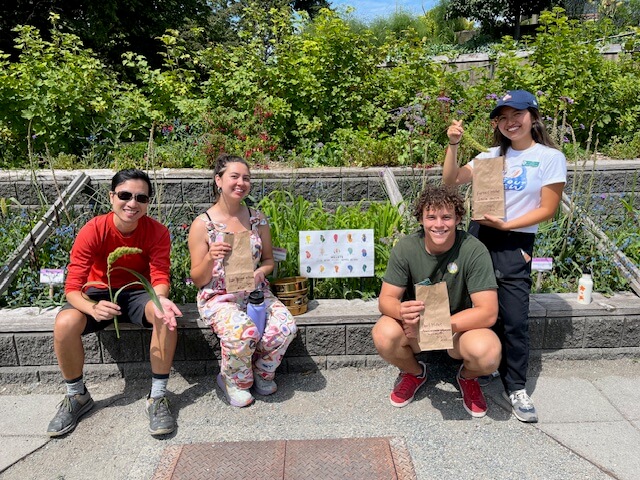
Photo of millet growing at the Food Garden. Credit: UBC Botanical Garden
And I've been doing a lot of work with different types of berries, berries that aren’t conventional or commercial berries like huckleberries. They're really important Indigenous food plants.
Bonnie: Lastly, how can people make more sustainable food choices in their everyday lives?
Tara: I always say eat plants—lots of them, reduce your food waste, and slow down and enjoy your food. Those are the three main things that I try to practice with my family and in my life. And if you can and if you have space, growing your own food is a very rewarding experience.
Other sustainable food initiatives at UBC
Climate Friendly Food Labels
Food systems on UBC’s Vancouver campus account for just over 21% of UBC’s overall GHG emissions. To address this, UBC has introduced Climate-Friendly Food (CFF) labels to the university’s residence dining hall menus. The CFF labels provide campus diners with clear information about how much GHGs are emitted to produce the meal’s ingredients. Read a post on Climate-Friendly Food Labels
From Farm to Campus
UBC Food Services embraces our local suppliers and we're proud to partner with the UBC Farm to integrate the farm's produce into campus dining options. This helps our community gain access to fresh, seasonal ingredients and foster a deeper connection to the food they eat and the land it comes from. Visit the UBC Farm's website
Building Sustainable Food Systems
What can we do to help make our food systems more sustainable? How can we use technology to reduce food waste? UBC researchers share small steps that can make a big collective impact. Read this Beyond UBC feature on sustainable food systems
Food Waste Reduction
UBC is committed to reducing food-related waste on our campus. We actively manage and track food waste, set reduction targets and work with food recovery partners to help eliminate unnecessary food waste. We strive to compost all food scraps, only use compostable single-use containers when necessary, and offer discounted reusable container programs. Read UBC's Zero Waste Action Plan: Towards a Circular Economy
Plant-Based Dining Options
UBC prioritizes and encourages plant-forward eating. At UBC, 55 per cent of the food in our dining halls is plant-based and we hope to reach a goal of 80 per cent by 2025. Read some UBC Food blog posts on vegan dining
